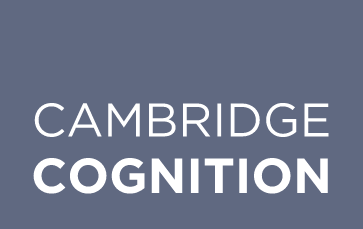
Epilepsy
Why is cognitive assessment important in epilepsy?

What is epilepsy?
Epilepsy is a neurological condition characterised by a history of two or more seizures. Seizures are acute episodes during which there is a surge of uncontrolled electrical activity in the brain. This causes involuntary movement in either a part of the body or the whole body. It may cause loss of consciousness1.
Epilepsy affects approximately 50 million people across the globe, with an estimated 5 million new cases being diagnosed each year1.
Many types of epilepsy are associated with cognitive impairment2. In addition, epilepsy can severely affect an individual’s quality of life and ability to function. People with seizures are at increased risk of psychological conditions such as depression and can experience physical consequences such as bruising and bone fractures.
Because epilepsy exists in many forms, and can be mistaken for other disorders, investigation and treatment should be undertaken by specialists. For confirmed epilepsy, a comprehensive treatment plan should be formulated, which can include anti-seizure medication. Examples of medications used in some types of epilepsy include carbamazepine, lamotrigine, and sodium valproate.
Why is it important to do research in epilepsy?
Cognitive deficits are often seen in individuals with many different forms of epilepsy2; these cognitive difficulties can impede educational and vocational outcomes3.
Evidence-based treatments specifically targeting these cognitive problems are needed, and many clinical trials are yet to thoroughly assess the effects of pharmacological interventions on cognition in people with epilepsy4.
Why it is important to do research in drug abuse liability?
Objective measurement of the abuse potential of novel compounds is crucial to ensure the product is safe for the intended use, helping to mitigate in-market problems of incorrect consumption. We have developed an assessment battery for the subjective and objective measurement of human abuse potential of compounds.
What is drug abuse liability?
The ability to detect or refute drug abuse liability is critical in product development, licensing, and for post-marketing surveillance.
Comprehensive understanding of abuse liability contributes to accurate risk-benefit analysis and internal decision-making, as well as accurate product labelling. In academic settings, detection of abuse liability is important when considering new projects, and when making Institutional Review Board (IRB) / Ethics Committee applications.
Abuse liability is dependent not only on the drug properties (including neurochemical effects on the brain, formulation, and pharmacokinetics) but also on the population being studied (age, vulnerability for addiction, psychiatric and physical health morbidities)2.
Abuse liability has critical public health implications – for example, the US Drug Enforcement Administration (DEA) has highlighted the growing problem of prescription drug abuse, and that the economic cost of non-medical use of prescription opioids is more than $53 billion per year3.
Examples of drugs with high abuse liability include certain opioids and morphine derivatives, central nervous system depressants, and stimulants4.
What is Down’s syndrome?
Down’s syndrome (or Down syndrome) is a genetic disorder which is typically associated with a degree of intellectual disability, along with particular physical characteristics. It affects approximately 1 in every 1,000 babies1. Down’s syndrome is the most commonly occurring chromosomal disorder and has been getting more common in recent years2.
In addition to intellectual impairment, Down’s syndrome is associated with increased risk of medical problems including congenital heart defects, reflux, hearing loss, obstructive sleep apnoea, visual impairment, thyroid disease, and dementia3.
Children and adults with Down’s syndrome should have access to multi-disciplinary support, which can involve input from doctors, educational experts, speech and occupational therapists, and social workers4. Examples of medical interventions that may be needed include surgery to correct congenital heart defects or a special diet to minimise digestive problems5.
Why it is important to do cognitive research in Down’s syndrome?
Cognitive deficits in Down’s syndrome represent a key target for novel treatments, in order to maximise everyday functioning and improve quality of life. This is relevant in view of the intellectual disability occurring generally with the condition, but also due to the association between Down’s syndrome and elevated risk of Alzheimer’s disease as individuals get older.
Why it is important to do research in depression?
Cognitive deficits are often seen in individuals with mood disorders, potentially reflecting underlying dysfunction of monoamine neurochemical systems3 and emotional processing circuitry4.
The search is on for treatments that can reduce cognitive impairment in mood disorders, in order to maximise long-term outcomes and quality of life. Another key area of ongoing research is the search for objective markers capable of identifying, for a given individual, treatment options that are most likely to be effective and well-tolerated.
What is depression?
Mood disorders are highly prevalent across the world, affecting 5-10% of the adult population in a given year1, 2. The most common mood disorders are major depressive disorder, dysthymia, and bipolar disorder.
Major depressive disorder (also known as depression) is characterised by low mood and/or loss of interest in previously pleasurable activities; in addition to a combination of several other symptoms such as impaired attention, changes in body weight, sleep disturbance, fatigue, excessive feelings of guilt, and negative thoughts.
In bipolar disorder, individuals experience at least one episode of manic symptoms, but depressive episodes are also common. Mania refers to a distinct period of elevated, expansive, or irritable mood coupled with excess energy.
Collectively, mood disorders cause considerable distress to affected individuals and can have a devastating impact on quality of life and everyday functioning.
Treatment options for mood disorders can vary, but may include pharmacological treatments such as selective serotonin reuptake inhibitors (SSRIs) for depression and lithium or divalproex for bipolar disorder. Psychotherapy, particularly Cognitive Behavioural Therapy (CBT) may also be recommended, especially for those with depression.
Why is it important to do research in core cognitive function?
Brain disorders are common, debilitating and economically crippling. Existing treatments often do not reverse underlying cognitive impairment or cannot be tolerated by patients. Our core cognition test battery incorporates the core cognitive domains often impaired in brain disorders, as well as those affected by cognitive enhancing drugs or interventions.
What is core cognitive function?
Cognitive functions are critical for everyday functioning, including in the workplace and social situations.
Problems with cognition are central to understanding psychiatric and neurological conditions across the lifespan. Examples include childhood-onset conditions such as Attention Deficit Hyperactivity Disorder (ADHD) or autism, conditions with onset in adolescence or early adulthood such as schizophrenia and depression, and disorders of older age including dementia.
In a given year, approximately one-third of the adult population will experience a mental disorder, but less than one-third of these individuals receive any form of treatment1,2.
Collectively, brain disorders represent a leading cause of morbidity across the globe, and this burden of disease is likely to increase over time3.
Treatments capable of reversing cognitive dysfunction in brain disorders can help maximise quality of life and everyday functioning for affected individuals, in turn minimising suffering and the economic impact of these illnesses.
Cognitive enhancement is also relevant in our daily lives, even in people without brain disorders. Caffeine consumption is an everyday occurrence in much of the world, and is used to regulate alertness and concentration, including in high-level athletes4. “Brain training” products are being investigated as a means of maintaining ‘brain health’ as we age5.
Certain conditions that cause cognitive dysfunction do have evidence-based treatments available. For example, ADHD can be successfully treated with psychostimulants or selective norepinephrine reuptake inhibitors such as atomoxetine. However, many people cannot take these medications due to intolerance or because of contraindications. Many other conditions, including schizophrenia and multiple sclerosis, do not have treatments that modify the underlying disease at all. This means that there is still a great need for novel interventions that can treat conditions with cognitive dysfunction.
Why it is important to do research in cognitive safety?
Cognitive impairment is increasingly recognised as an important potential adverse effect of medication. Medications can exert untoward cognitive effects both via direct effects on the brain (by crossing the blood-brain barrier) and via indirect actions (peripheral mechanisms in the body). However, many drug development programmes do not incorporate sensitive cognitive measurements.
This field is still at an early stage, and precisely what designs should be adopted, what outcome measures should be used, and what statistical approaches are most appropriate will vary depending on the drug in question and the indication.
Even if a drug is shown to induce some cognitive impairment, it might still be beneficial to prescribe it; but pharmaceutical companies, regulators, clinicians, and patients need to understand the possible cognitive risks and their implications for everyday function.
What is cognitive function?
Cognitive functions are vital for everyday functioning, including in the workplace and in social situations. They are especially crucial in safety-critical scenarios, such as when driving a car, or operating machinery.
Detection of negative cognitive effects of pharmaceutical interventions is of vital importance from the perspective of patients, clinicians, and the public. Cognitive Safety signals are also an increasing focus of regulatory agencies including the US Food and Drug Administration (FDA) and European Medicines Agency (EMA)1.
Assessment of the cognitive effects of medication is crucially important in drug development, licensing, and post-marketing surveillance. During drug development, objective measurement of cognitive effects can inform key decisions such as selection or rejection of compounds, choice of doses, and in support of the target indication(s).
Safety-relevant cognitive data are extremely valuable in support of regulatory submissions and drug differentiation claims. Testing for cognitive function, motor skills and mood has been highlighted by the FDA as being important when conducting clinical trials for medications suspected to impact brain function2.
Why is it important to do research in autism?
Individuals with autism spectrum disorder often exhibit cognitive deficits that reflect underlying abnormalities in brain structure and function5,6. Our recommended test battery for research of autism spectrum disorder’s assesses the core domains impaired in ASD, as well as those likely to be affected by novel interventions.
The search is on for treatments that can ameliorate the core symptoms of ASD, and cognitive impairment, in order to maximise long-term outcomes and quality of life for affected individuals.
What is autism?
Autism is a neurodevelopmental disorder associated with problems with social communication and/or interaction, and occurrences of restricted or repetitive patterns of behaviour, interests, or activities.
Autism was previously distinguished from Asperger’s syndrome, but the latest version of the Diagnostic and Statistical Manual (DSM-5) instead uses a broader ‘umbrella’ category of Autism Spectrum Disorder (ASD).
The condition affects approximately 1 in every 100 children. It is not fully known what causes autism but it is thought to include a mixture of environmental and genetic factors1.
The UK National Institute for Health and Care Excellence (NICE) has a number of guidelines regarding the recognition, diagnosis, and treatment of autism2-4. Generally speaking, people with autism should be supported via a multidisciplinary approach, by people with expertise in the disorder. This can involve support from clinical psychologists, nurses, occupational therapists, psychiatrists, social workers, speech and language therapists, and other support staff.
What is ADHD?
Attention-Deficit Hyperactivity Disorder (ADHD), otherwise known as hyperkinetic disorder, is a condition that affects people’s behaviour. ADHD can cause restlessness, trouble concentrating and impulsive behaviour1. For example, children with ADHD may blurt out answers in the classroom, fidget and find it impossible to keep still and struggle to focus on what a person is saying.
ADHD is the most common psychiatric disorder of childhood, affecting at least 5% of children globally. Symptoms persist into adulthood in up to 60% of childhood cases2.
For a diagnosis of ADHD to be given, the symptoms must be functionally impairing and occur in at least two distinct settings, for example at home and at school.
Considerable research has examined the long-term consequences of ADHD, highlighting its global importance for society. In a systematic review of the data, untreated ADHD was associated with poorer long-term outcomes across all categories considered: these included academic performance, job performance and employment status, self-esteem, quality of life, and risk of driving accidents3.
ADHD is a treatable psychiatric disorder, with medium to large effect sizes in terms of symptomatic improvement, versus control conditions, over the short-medium term4.
ADHD is often misdiagnosed, and is frequently comorbid with other mental (and physical health) disorders. First-line treatment options for ADHD can include consideration of psychotherapy and/or medication, but these should always be offered as part of a comprehensive package of care. The most appropriate treatment options and sequencing of treatment options can vary considerably depending on factors such as the age of the individual, severity of disease, and patient/family preference.
Why it is important to do research in ADHD?
The core symptoms of attention deficit disorders are cognitive in nature (inattention, hyperactivity, and/or impulsivity). These cognitive deficits often reflect underlying brain circuitry dysfunction (including prefrontal regions) and of neurochemical transmission, including the dopamine and noradrenaline/norepinephrine pathways5-9. Our recommended test battery for attention deficit disorders assesses the cognitive domains most likely to be impaired, as well as those likely to be affected by interventions.
Recommended CANTAB test battery for epilepsy
Our recommended test battery for researching epilepsy incorporates six cognitive tests to comprehensively assess the key cognitive domains often impaired, as well as those likely to be affected by interventions.
Endpoints measured
Executive function
Processing speed
Episodic memory
Sustained attention
Motor skills

Key research for CANTAB® in epilepsy
Pathology and functional impact of epilepsy
In the majority of cases, there is no identifiable cause of epilepsy and so it is termed ‘idiopathic’ or primary. When causes can be identified, this is referred to as secondary epilepsy.
Secondary epilepsy can be caused by brain damage (for example due to stroke, trauma, or perinatal complications), infections of the brain, malignancies of the brain, and certain genetic conditions1.
Limitations in the existing cognitive research commonly includes overlooking the possible contribution of comorbid conditions (for example depression), and failure to use standardised, comprehensive cognitive assessment tools2.
Further reading
You can find more papers about cognition and epilepsy in our bibliography.
Here are some other papers that might be of interest:
Loughman A., et al (2014). Cognitive functioning in idiopathic generalised epilepsies: a systematic review and meta-analysis. Neurosci Biobehav Rev.
Cross J.H., (2010). Neurodevelopmental effects of anti-epileptic drugs. Epilepsy Res.
Palade S., and Benga I., (2007). Neuropsychological Impairments on the Cantab Test Battery: Case Reports of Children with Frontal and Temporal Lobe Epilepsy. Cognition, Brain, Behavior.
Gutierrez-Galve L., (2012). Cortical abnormalities and their cognitive correlates in patients with temporal lobe epilepsy and interictal psychosis. Epilepsia.
References
- https://www.who.int/news-room/fact-sheets/detail/epilepsy
- Loughman A, Bowden SC, D'Souza W. Cognitive functioning in idiopathic generalised epilepsies: a systematic review and meta-analysis. Neurosci Biobehav Rev. 2014 Jun;43:20-34.
- Brooks-Kayal AR, Bath KG, Berg AT, Galanopoulou AS, Holmes GL, Jensen FE, Kanner AM, O'Brien TJ, Whittemore VH, Winawer MR, Patel M, Scharfman HE. Issues related to symptomatic and disease-modifying treatments affecting cognitive and neuropsychiatric comorbidities of epilepsy. Epilepsia. 2013 Aug;54 Suppl 4:44-60.
- Cockerell OC, Hart YM, Sander JW, Shorvon SD. The cost of epilepsy in the United Kingdom: an estimation based on the results of two population-based studies. Epilepsy Res. 1994 Jul;18(3):249-60.
- Torgersen JGR, Flaaten HK, Engelsen BA, Gramstad A. Clinical Validation of Cambridge Neuropsychological Test Automated Battery in a Norwegian Epilepsy Population. JBBS. 2012 Feb; 2(1):108-116.
- Palade S, Benga I. Neuropsychological Impairments on the Cantab Test Battery: Case Reports of Children with Frontal and Temporal Lobe Epilepsy. Cognition, Brain, Behavior. 2007; 11(3):539-552.
- Gutierrez-Galve L, Flugel D, Thompson PJ, Koepp MJ, Symms MR, Ron MA, Foong J. Cortical abnormalities and their cognitive correlates in patients with temporal lobe epilepsy and interictal psychosis. Epilepsia. 2012 Jun;53(6):1077-87.


